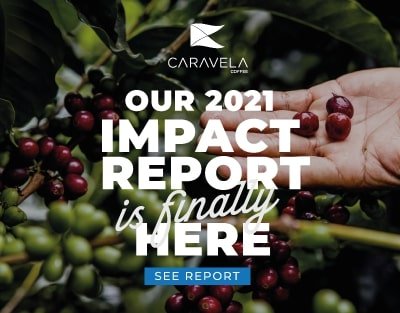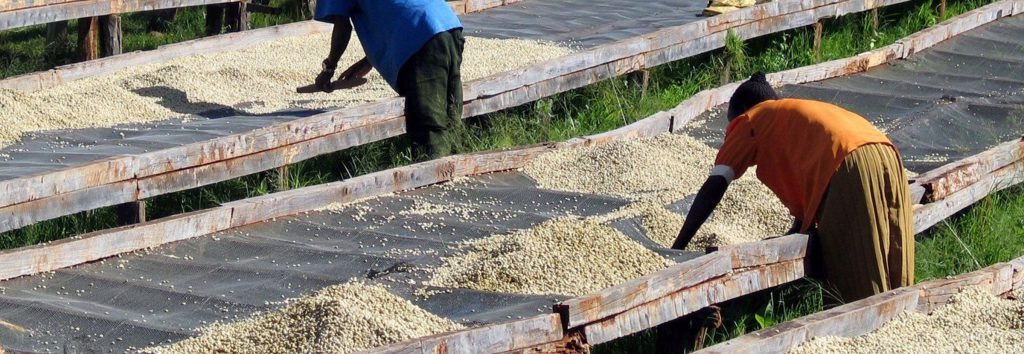Are you a barista looking for a platform to showcase your skills? Look no further than Perfect Daily Grind (PDG), a digital coffee publication that provides a space for baristas, roasters, and coffee enthusiasts to demonstrate their expertise and creativity. With a growing number of championships and contests in the specialty coffee sector, these events serve as opportunities for coffee professionals to shine and stay up-to-date with industry innovation. Whether you’re a seasoned barista or just starting out, PDG is the perfect place to connect with like-minded coffee lovers and showcase your talents. So, get ready to elevate your coffee game and join the thriving community at Perfect Daily Grind.
Perfect Daily Grind: A Platform for Baristas to Showcase Their Skills
Welcome to Perfect Daily Grind (PDG), your go-to digital coffee publication that celebrates the skills and expertise of baristas around the world. In this comprehensive article, we will explore various aspects of the coffee industry, from production and trade to roasting, coffee shop management, and consumer coffee essentials. Additionally, we will provide you with the latest news and updates in the coffee world. So grab a cup of your favorite brew and join us on this coffee-filled journey!

This image is property of perfectdailygrind.com.
Industry Production & Trade
How does the timing of capital affect coffee farmers?
Capital timing plays a crucial role in the lives of coffee farmers. The availability of capital at the right time can significantly impact their ability to invest in essential resources, such as equipment, fertilizers, and land. Timely access to capital allows coffee farmers to make necessary investments during critical phases of the coffee production process, ultimately improving the quality and yield of their crops.
How are Indian coffee farmers recovering after recent storms?
Indian coffee farmers have faced significant challenges in recent years due to severe storms and extreme weather events. These natural disasters have caused extensive damage to coffee crops and infrastructure, leading to financial losses and hardship for the farmers. However, through resilience and determination, Indian coffee farmers have been slowly but steadily recovering. With the support of government initiatives, training programs, and assistance from organizations, they are rebuilding their farms and embracing sustainable practices to mitigate future risks.
How has robusta production in Nicaragua developed in recent years?
Nicaragua has experienced notable growth in robusta coffee production in recent years. Robusta coffee, known for its bold and strong flavor profile, has become increasingly popular in the specialty coffee market. Nicaraguan coffee farmers have recognized this trend and have been investing in robusta cultivation, leveraging the country’s favorable climate and fertile soil. This increased focus on robusta production has not only contributed to the country’s coffee export earnings but has also created new opportunities for farmers.
Can coffee production in the Amazon be sustainable?
Coffee production in the Amazon faces unique challenges due to the region’s delicate ecosystem and the impact of agriculture on deforestation. However, sustainable practices and initiatives are emerging to address these issues. By implementing agroforestry techniques, such as shade-grown coffee cultivation, biodiversity conservation, and reforestation efforts, coffee farmers in the Amazon can minimize their environmental footprint and contribute to the preservation of this vital ecosystem.
Resolving environmental issues in coffee production
Environmental issues in coffee production are a growing concern for the industry. From deforestation to water pollution and soil degradation, these issues have significant implications for both the environment and the livelihoods of coffee farmers. To tackle these challenges, various initiatives have been introduced, including sustainable farming practices, certification programs, and collaborations between coffee producers and environmental organizations. By prioritizing sustainability and environmental stewardship, the coffee industry can work towards a more responsible and eco-friendly future.

This image is property of perfectdailygrind.com.
Roasting
How can roasters sell coffee to grocery stores and supermarkets?
Selling coffee to grocery stores and supermarkets is a great opportunity for roasters to reach a wider customer base. To successfully enter this market, roasters should focus on building strong relationships with retailers, ensuring consistent quality and taste, and providing attractive packaging and branding. It’s also essential to understand the specific requirements and preferences of grocery store customers, such as convenience, affordability, and variety.
How can roasters store and transport roasted coffee safely & effectively?
Proper storage and transportation of roasted coffee are essential to maintain its freshness and quality. Roasters should store roasted coffee in airtight containers in a cool, dark place to prevent exposure to oxygen, light, and moisture. When it comes to transportation, roasters should invest in secure packaging that protects the coffee from physical damage and temperature fluctuations. Additionally, choosing reliable logistics partners and optimizing supply chain processes will ensure that the coffee reaches its destination in optimal condition.
How do specialty roasters manage their green coffee supply?
Specialty roasters place a strong emphasis on sourcing high-quality green coffee beans. They often establish direct trade relationships with coffee producers and cooperatives to ensure transparency, fair prices, and sustainable practices. Specialty roasters meticulously evaluate and cup samples of green coffee to assess its quality and flavor profile. By diversifying their sources and staying connected with coffee farmers, specialty roasters can maintain a consistent supply of exceptional green coffee beans.
Specialty roasters: How often should you rotate your green coffee?
Rotating green coffee is essential for specialty roasters to maintain freshness and quality. While there is no one-size-fits-all answer, it is generally recommended to rotate green coffee every three to four months. This frequency allows roasters to optimize the flavor and aroma of their roasted coffee while minimizing the risk of deterioration due to prolonged storage. Roasters should monitor the age and condition of their green coffee inventory regularly to ensure optimal results.
How can you reduce emissions during coffee roasting?
Reducing emissions during coffee roasting is crucial for promoting environmental sustainability in the coffee industry. Roasters can adopt various strategies to minimize their carbon footprint, such as investing in energy-efficient roasting equipment, optimizing roasting profiles to reduce roasting time and energy consumption, and utilizing renewable energy sources. Additionally, implementing proper waste management practices, such as recycling and composting, can further contribute to reducing emissions and creating a more eco-friendly roasting process.

This image is property of perfectdailygrind.com.
Coffee Shop & Barista
How to find sustainable specialty coffee shops and roasters
As consumers become increasingly conscious of their environmental impact, finding sustainable specialty coffee shops and roasters has become a priority for many coffee enthusiasts. One way to identify sustainable establishments is to look for certifications or memberships in organizations such as Fair Trade, Rainforest Alliance, or Organic. Additionally, conducting research, reading reviews, and engaging with the coffee community can provide insights into the sustainability practices and values of different coffee shops and roasters.
How can baristas foam milk for specialty coffee without using steam?
Foaming milk for specialty coffee without using steam is possible through alternative methods such as manual frothing or using steamless milk frothers. Manual frothing involves whisking the milk vigorously in a bowl or using a handheld frother to create a creamy foam. Steamless milk frothers use electric technology to froth the milk to the desired consistency without the need for steam. These alternatives offer baristas more flexibility and allow them to create beautifully textured milk for specialty coffee drinks.
What’s it like to be a specialty coffee barista in the Middle East?
Being a specialty coffee barista in the Middle East offers a unique experience shaped by the region’s rich coffee culture and booming coffee scene. Middle Eastern specialty coffee baristas often have the opportunity to work with traditional brewing methods, such as Turkish coffee or Arabic coffee. They also encounter a diverse range of customers with distinct coffee preferences and cultural traditions. The Middle East’s increasing demand for specialty coffee creates a dynamic and vibrant environment for baristas to showcase their skills and learn from local and international coffee experts.
Is there space for new coffee competitions?
With the growing popularity of specialty coffee, there is certainly space for new coffee competitions. These competitions provide a platform for baristas to push the boundaries of creativity, share knowledge and innovations, and connect with like-minded professionals. New competitions can also cater to niche areas of the coffee industry, such as alternative brewing methods or sustainable practices, allowing baristas to specialize and excel in their chosen field. As long as there is passion and enthusiasm for coffee, there will always be room for new and exciting competitions.
How can competitors source coffee for the World Barista Championships?
Competing in the World Barista Championships requires sourcing exceptional coffee beans. Competitors often work closely with specialty coffee importers, roasters, or even directly with coffee producers to find unique and high-quality coffee. The selection process involves cupping and evaluating different coffee samples to identify the perfect coffee that aligns with the competitor’s vision and desired flavor profile. Building strong relationships with coffee suppliers and conducting extensive research are key to sourcing outstanding coffee for the World Barista Championships.

This image is property of perfectdailygrind.com.
Consumers Coffee Essentials
Does olive oil coffee have a place in specialty coffee?
Olive oil coffee, a trending drink in some parts of the world, involves adding a small amount of olive oil to the coffee during the brewing process. While olive oil can add a unique flavor and texture to the coffee, its place in the specialty coffee world is subjective. Some argue that olive oil can overpower the delicate flavors of specialty coffee, while others appreciate it as an alternative and innovative addition. Ultimately, the acceptance of olive oil coffee in the specialty coffee community depends on individual preferences and experimentation.
Was canned coffee invented in Japan?
Yes, canned coffee was indeed invented in Japan. In the 1960s, Japan introduced the concept of canned coffee, revolutionizing the way people consume coffee on the go. Canned coffee quickly gained popularity due to its convenience, long shelf life, and availability in vending machines across Japan. Today, Japan continues to be a leader in canned coffee, offering a wide range of flavors and varieties to suit different preferences.
What is mazagran coffee & how do you make it?
Mazagran coffee is a refreshing cold coffee beverage that originated in Algeria. It consists of espresso or strong black coffee mixed with lemon juice, sweetened with sugar, and served over ice. This beverage offers a unique balance of bitter coffee, tartness from the lemon, and a hint of sweetness. To make mazagran coffee, simply brew a shot of espresso or strong black coffee, add fresh lemon juice and sugar according to taste, and pour it over a glass filled with ice. Stir well and enjoy!
How does snapchilling coffee work?
Snapchilling coffee is a technique used to quickly cool down hot brewed coffee to preserve its desirable flavors and prevent over-extraction. It involves brewing coffee with slightly less water than usual and immediately pouring it over a large amount of ice. The ice rapidly cools down the hot coffee, preserving its aromatic qualities and ensuring a balanced and flavorful cup. Snapchilled coffee is a popular method among specialty coffee enthusiasts who enjoy iced coffee with bright and vibrant flavors.
What is a babyccino & why do coffee shops serve them?
A babyccino, also known as a babycino, is a warm or cold beverage typically served to young children in coffee shops. It is a coffee-free drink consisting of frothed milk topped with a sprinkle of chocolate powder or cinnamon. Babyccinos offer children a sense of inclusion and allow them to feel grown-up while accompanying their parents to coffee shops. It provides a fun and safe introduction to the café experience and allows children to enjoy a drink similar to their parents’ without the caffeine content.

This image is property of perfectdailygrind.com.
News & Updates
Coffee News Recap, 6 Oct: Submissions open for 2024-27 World Coffee Roasting Championship sponsorship, 2023 World Coffee Innovation Award winners announced at Caffè Culture & other stories
In our Coffee News Recap for October 6th, we bring you exciting updates from the coffee industry. Submissions are now open for the sponsorship of the 2024-27 World Coffee Roasting Championship, providing an opportunity for organizations to support and showcase their commitment to the industry. Additionally, the winners of the 2023 World Coffee Innovation Awards were announced at the renowned Caffè Culture event, recognizing groundbreaking innovations in the coffee sector. Stay informed and learn more about these stories and other news happening in the coffee world!
Coffee News Recap, 29 Sep: Sixteen AeroPress Championships to take place in October, first-ever…
In our Coffee News Recap for September 29th, we share the latest updates from the coffee industry. October is set to be an exciting month with sixteen AeroPress Championships taking place globally, showcasing the creativity and skills of baristas. Furthermore, the first-ever… (text cut-off)


